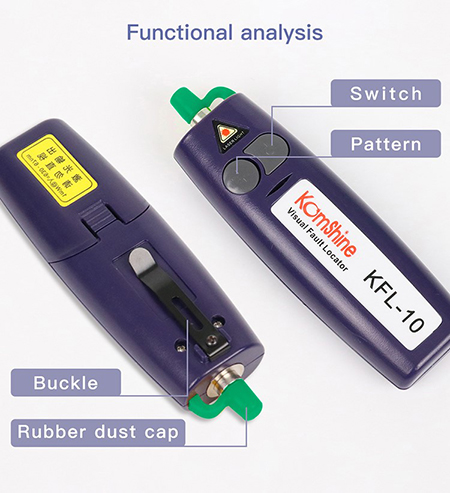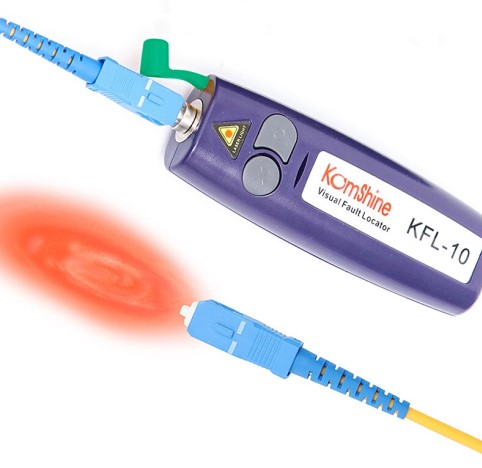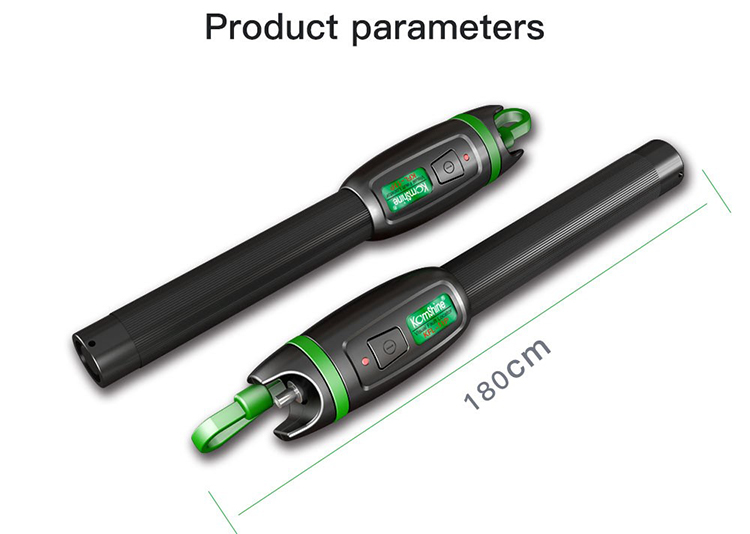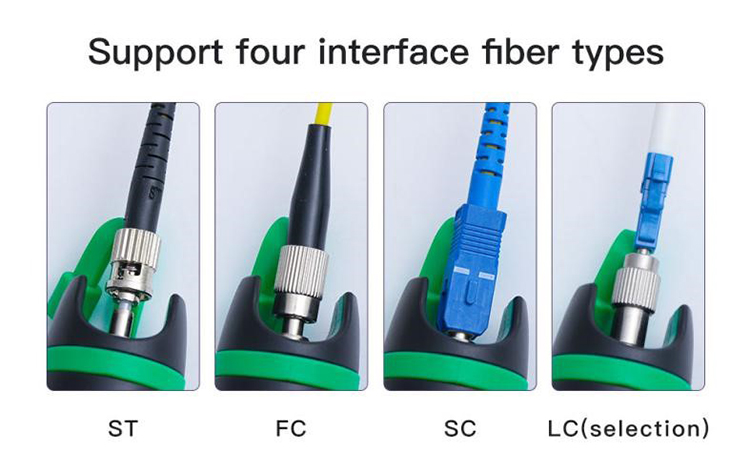In the optical fiber network wiring, in order to adapt to the environment and various requirements, usually needs wire, welding. Fiber is fragile and prone to failure, Therefore, optical fiber detection tool has become a common tool in integrated network routing.
As one of the commonly used optical fiber detection tools for troubleshooting network faults, optical fiber visual fault locator can quickly detect optical fiber connectivity and fault points. So do you really know about visual fault locator? What other uses it has besides detecting fault points? How does it work?
It’s mainly used for detecting broken point. The principle:The 650nm semiconductor laser is used as the luminescent device, which emits stable red light through constant current source drive, and connects to the optical interface to enter the optical fiber, to realize the optical fiber fault detection function, including detecting optical fiber connectivity and locating fault points .
In addition, it also has the function of OTDR blind spot fault inspection, end-to-end optical fiber identification and mechanical connection point optimization, which can be used in telecom /CATV engineering and maintenance, integrated wiring construction and maintenance, optical device production and research and other optical fiber engineering.
There are two types:Komshine KFL-10 mini type and KFL-11P pen type
Komshine KFL-10 mini type
★Pocket size design,easy to carry;
★The silica gel dust cap is not easy to break and can protect the fiber interface well;
★Hidden button design, not easy to open automatically,Pulsed and CW operation ;
★Imported laser chip, with strong light penetration;
★2.5mm universal connector,support SC、FC、ST、LC(optional)connector;
★The ceramic core can be replaced to extend the service life. The test distance is about 5~30 kilometers, which is more suitable for use in the narrow space such as machine room and cabinet.
Komshine KFL-11P(pen type)
★Pocket size design,easy to carry;
★The silica gel dust cap is not easy to break and can protect the fiber interface well;
★Hidden button design, not easy to open automatically,Pulsed and CW operation ;
★Imported laser chip, with strong light penetration;
★2.5mm universal connector,support SC、FC、ST、LC(optional)connector;
★The ceramic core can be replaced to extend the service life.
★30 hours of operation(1mW) and 30km test distance
The visual fault locator is mainly used to detect the connectivity of optical fiber and locate the fault points of optical fiber.
There are 2 working mode of visual fault locator:
①In constant light mode, the connectivity of fiber jumper can be presented stably through continuous light.
②Flicker mode, through the flicker light quickly find out the fault point of optical fiber.
Take Komshine for example:
1. Install the battery and check whether the optical fiber locator is in good condition
the battery is installed in the pen body (pay attention to the positive and negative electrode of the battery), turn on the pen dust cap and control switch, observe whether the locator has red light.
2. Choose the appropriate connector according to the type of fiber
Komshine visual fault locator support 4 connector types, you can insert the fiber to the interface of locator (the fiber jumper connector should be cleaned before been inserted)
3.Detecting the optic fiber
Choose normally mode (often by 2 seconds boot), through continuous light check fiber connected and in good condition, if no leaks of red light in the fiber, indicates the fiber is in good condition, if the existence of red light leak somewhere in the fiber, then open the flickering mode (press the button again), quickly find out the fault point.
If the fiber is damaged due to the excessive bending,just replace it. If the fault point of the fiber is the welding point, then there may be bubbles at the welding point, and the fiber needs to be fused again.
1.Laser is harmful to eyes, so avoid direct laser to eyes when using ;
2.Cleaning the optic fiber connector before inserting to the visual fault locator;
3.High temperature working environment should be avoided as far as possible;
4.After using please wear a dust cap in time;In order to avoid battery decay and damage to the red pen, please take out the battery in time when you do not use the red pen for a long time.



























